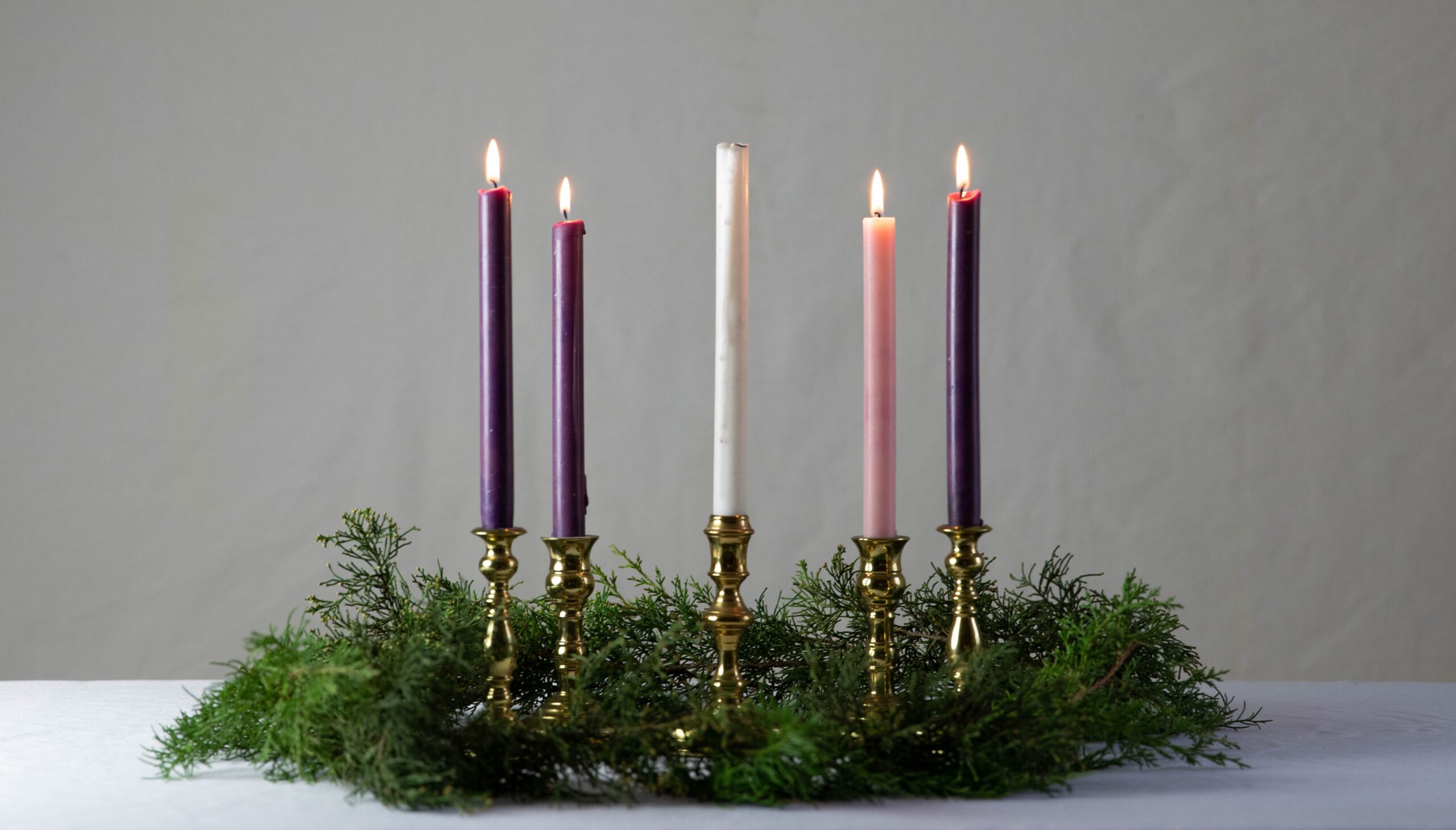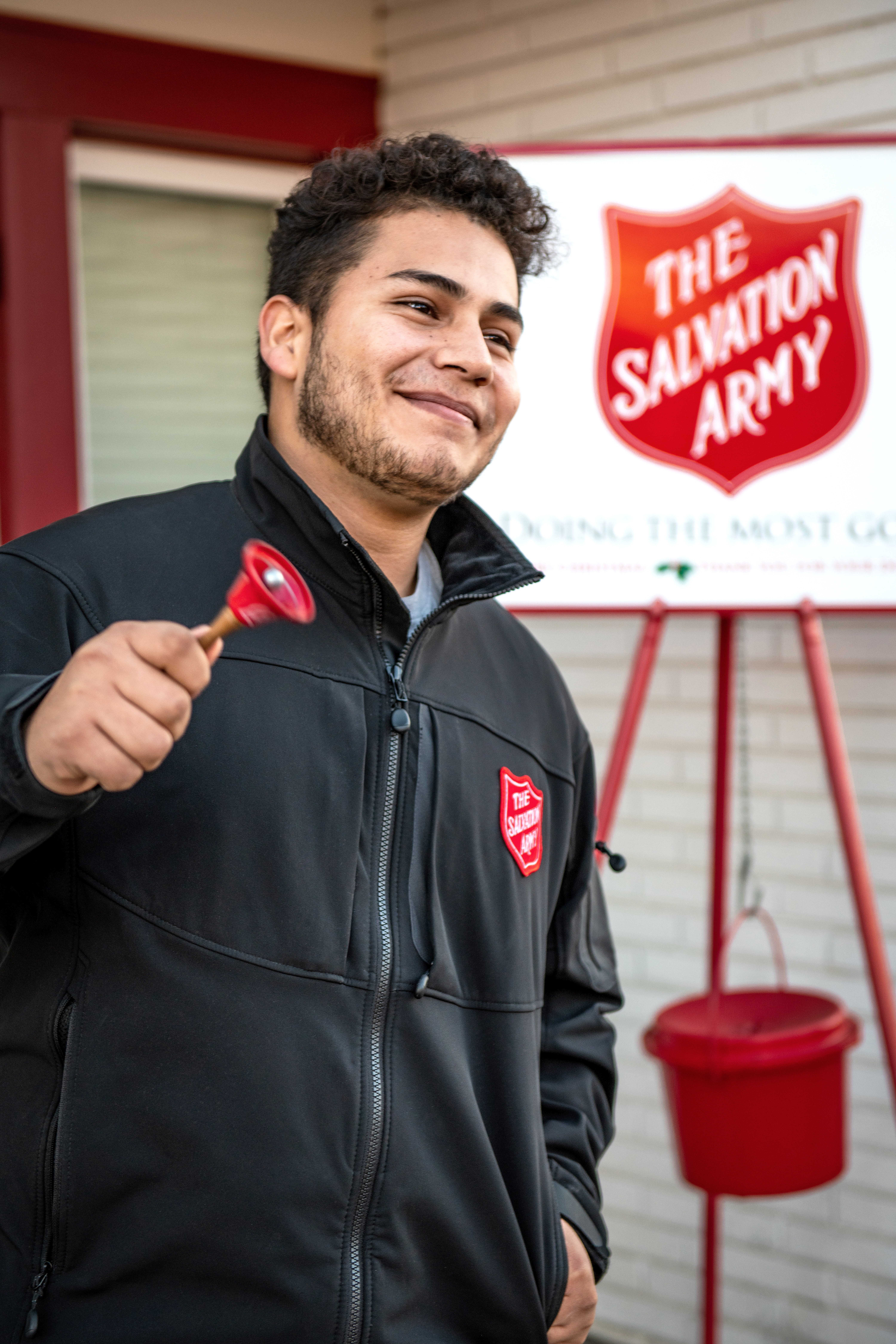All right, I’ll admit it. I’ve been indulging my carnivorous cravings over the past few days, as I often do before a long fast begins. [See *Note below.] The Nativity Fast commences on Thursday (November 15th), and I’m gettin’ real here: the timing of this fast is seriously inconvenient.

It is the second-longest fast of the year: forty days before Christmas, and it’s not even that difficult, food-wise. Fish, olive oil, and wine are allowed every day except the normal fast days of Wednesdays and Fridays. Also, here in America, all of the Orthodox people I know take a break to celebrate Thanksgiving (the fourth Thursday in November). At the end of the weekend, we clear away or freeze all meat and dairy products then get back to spiritual business. (If you actually eat Tofurky for Thanksgiving, I bow before you in awe.)
So the fast isn’t as rigorous as Great Lent, but for those of us who live in the world, the outside culture constantly interferes with our efforts . My husband’s office “holiday party” is scheduled for early December, and already I’m wondering what we will be able to eat and drink. For me, the fast during this particular season reminds me how countercultural Orthodox Christianity is.
Why?
Because each feast in the ecclesiastical calendar is preceded by a time of preparation that may last from a few days to the many weeks of Great Lent. Christmastime is no exception. However, the modern approach to Christmas wars against all three components of spiritual preparation: prayer, almsgiving, and fasting.

Trying to Keep Christ—and Prayer—in Christmas
Every thinking Christian from every church affiliation has struggled with the acquisitive, commercial, materialistic nature of the Christmas season. The pressure is relentless—to buy more, more, and more things for our loved ones, to compete in the neighborhood lighting contest, to add holiday events to our already busy schedules.

We try valiantly to combat the spirit of the age. Some people make Advent wreaths and light a new candle each week. Others bake cakes for Jesus’ birthday. But in a child’s mind, such small gestures can’t compete with a month full of iced cookies and all the new toys on Christmas morning.
Does the Christmas season encourage increased prayer? No way. Personal prayer and church attendance require time, a commodity that is in short supply from the American Thanksgiving holiday through the New Year. (Canadians celebrate their Thanksgiving on the much more sensible second Monday in October.)
Beginning in late November—not long after the Nativity fast begins—our spare time often is devoted to several days of Thanksgiving prep, followed by a December filled with baking Christmas cookies, sending out Christmas cards, attending parties for work, church, and other social circles, extra practices for “holiday” concerts at school, traveling to visit relatives, and making room for visiting family members in our homes.

Prayer? Not this morning—I have to wrap that white elephant gift for the Secret Santa exchange at work.
Sometimes churches, including Orthodox ones, add to this time pressure. December is filled with fundraising events, rehearsal time for Christmas concerts and children’s pageants, and other gatherings.
By the time the Christmas Eve service rolls around, we are exhausted.
Some of these activities are wonderful, meaningful traditions. Personally, I’m not much of a baker, but I seriously deck the halls—and the kitchen and the living room and every horizontal surface—for Christmas. I love the twinkling lights and the greenery and the sparkles. But all the hubbub—the good, the bad, and the ugly—has nothing to do with time alone with God.
The Season of Giving
At least almsgiving feels more natural. We drop our spare change into the big red kettles while the Salvation Army volunteers ring their bells, and we respond to the Christmas mailings from charities asking for end-of-year donations.

The spirit of giving survives, right?
In many ways, yes. But our motives are mixed. Many people give money during this time for reasons that are more pragmatic than philanthropic, donating their dollars in the waning weeks of the calendar year for the sake of income tax deductions.
Even when we include this frenzy of year-end donations, charitable giving among American Christians hovers around 3% of gross income, which falls far short of the biblical tithe.
We spend far more money on gifts for family and friends, with adults averaging more than $1,000 in credit-card debt for our spending sprees last year.
Generally, ’tis not the season for prayer or almsgiving.
Fasting and Christmas—Like Oil & Water
If you talk about the need for greater giving or a focus on worship during December, you will likely get nods of approval. But try to raise the idea of fasting before Christmas, and your Protestant and Catholic friends will give you blank stares. Even nonreligious people will bemoan the frantic pace and monetary excesses of the holiday season, but fasting—except for the latest fad in colon cleansing—is foreign to the unchurched, and completely lost among non-Orthodox Christians.
Instead, the period between Thanksgiving and New Year’s Day is a time of ongoing indulgence in rich foods and holiday cocktails. After Christmas, the guilt sets in along with the tighter waistbands, and after the final New Year’s binge, Americans collectively groan, “I need to go on a diet!”

The feasting is now followed by a time of fasting and self-denial, a rhythm that is the exact opposite of the ancient Christian pattern. Our society has turned our understanding of feasting and fasting upside-down!
Culturally, we Orthodox are on our own for this one, folks.
Anticipating the Joy of the Incarnation

But the ancient Church got it right. With a deep spiritual understanding of human psychology—as my priest loves to point out, psyche (pronounced SEE-kee) is Greek for “soul”—the Church knows that a true feast requires the preparation of self-discipline. Just as children’s anticipation of Christmas Day grows as all those wrapped gifts pile up under the tree, our anticipation of the Feast of the Nativity of Our Lord and Savior Jesus Christ grows during the fast.
Every act of self-denial, no matter how small, reminds us of the God who became man and gave Himself for us.
As we say “no” to schedule overcrowding, we say “yes” to time with God.
As we give more to the needy (even if this year we can’t afford much more than the widow’s mite), we remember that God has given us every blessing that we enjoy.
![]()
Each time we turn away from the rich foods that we really, really want, we anticipate the Kingdom feast in heaven, where we will celebrate eternally with the Bridegroom.
Every aspect of the fast, in ways large and small, turns our attention to the glory and mystery of the Incarnation on a daily basis. When we stumble and break the fast in one way or another, even our failures remind us of our need for transformation and forgiveness in Christ.
And when Christmas Day at last arrives, that delicious roast or ham tastes so good after a month of lentils!
The Nativity Fast reminds us daily of the Reason for the Season.
Good strength to you all!
* Note: For those of you who are new to Orthodoxy, let me clarify: an Orthodox fast is not food-free; it’s a mostly vegan life, with no meat, fish (except shellfish), dairy, or wine. Throughout the year, most Wednesdays and Fridays are fasting days. We’ll examine the joys and challenges of fasting in the future.